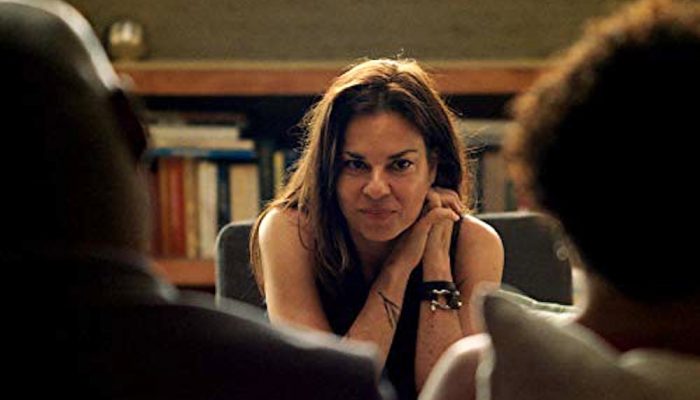Codependents are covert manipulators, too.
I know, because I am one.
I also know that this message is unpopular amongst our kind.
I, myself, performed all kinds of mental acrobatics to avoid it. Turns out that admitting it, and uncovering the shame I was unconsciously carrying about it, were the keys to my freedom from the cycle of abuse.
The truth is that most of us learned this “codependent” survival pattern as children, and, like a malignant narcissist (fight-flight dominant response), our nervous system is running our own “freeze-fawn” program on auto-pilot.
In reality, I have nothing but deep compassion for anyone who has endured or survived abuse, or is still enduring it. Nothing can describe that kind of pain or horror. In no way am I saying you are not being victimized. In no way am I denying that abuse is real, insidious, or dangerous.
If you are angry about my message, consider that you may be the one denying reality right now. More importantly, you are the only one who can take action steps toward making a plan to get yourself to safety, or to heal from the cycle of abuse, once you have.
Because despite what you have allowed your abusers to convince you of, you are not alone. Your life matters. You are worthy of love. I know it’s hard to hear, but you are also the only one who can set yourself free.
I can vividly remember sitting alone at my ex’s house after he threatened to have me killed, truly believing I had nowhere to go and no one who cared. In part, I was right, because I was the only one responsible for caring about me, and outsourcing that role to someone who was incapable was the true source of my insanity.
I realized in that moment that I had to make a choice. I could keep expecting someone to care about me who repeatedly showed me evidence that they didn’t (abuse), or start to care about myself when I still really believed I shouldn’t (self-abuse). It was also the moment that the veil of lies lifted and I figured out how to get away.
After surviving decades of horror, the most important thing I’ve realized is that I am the only one responsible for protecting and saving myself. Not understanding this concept was what kept me in the cycle of learned helplessness and abuse while I waited, endlessly, for someone to come to my rescue (yet another trap).
As codependents, we justify our manipulative behavior and say that we are better than the narcissist because we aren’t committing intentional acts of abuse. But oftentimes, we still do, and not just toward them.
We self-righteously label our behavior as “reactive-abuse” and, just like a narcissist, find people to feel sorry for us and confirm this. None of which gets us out of the cycle of abuse itself. We get caught up in the blame game and stay stuck in situations harmful to our health—whether in reality or just in our own repetitive thinking patterns (the actual source of our pain).
Don’t get me wrong, protecting oneself is essential when dealing with any malignant abuser or dangerous person. That repressed fight-flight response has an important function we are denying ourselves. Unfortunately, we need to remember that the majority of women incarcerated in the United States are convicted for acts of self-defense. And that this happens to men, too.
Leaving an abuser is rarely an easy feat, but it’s the only worthwhile one, and we may well be trapped for various legitimate reasons. I’m not saying anyone’s abusive behavior is ever our fault. What I am saying is that facing our own issues is the only way out, and the only way to heal. Period.
The trouble is, unlike our chosen abusers, we have that pesky conscience. Usually one that is far too large and takes responsibility for everyone else’s actions, too. Just like the narcissist, we can’t see the reality of our behavior or fully take responsibility for it. Mostly because we are far too busy taking responsibility for theirs.
This is also the exact cycle of behavior that keeps us choosing them. They abuse us, we eventually react, then we bend over backward apologizing and caretaking away our agency until they do it again. We martyr and sacrifice ourselves into oblivion, take responsibility for the whole thing, and prevent them from having real consequences for their actions (aka, leaving).
We repeat this pattern, over and over, and wonder why we are going insane. Which is why our behavior is just as desperate as any malignant abuser, or perhaps more so. Because, just like their abuse, our willingness to take on their projected responsibility (or not fully hold them accountable) is a desperate attempt to control the whole narrative (aka, manipulation).
Even deeper, in this way, we abuse and mistreat ourselves. Not long ago it occurred to me that I would be in prison for all the things I’ve done to myself and put myself through. I just couldn’t see that when I kept choosing someone else to have around and blame.
Because we have learned, albeit subconsciously, that if we play the role of victim and scapegoat, we might be able to keep the carefully crafted illusion of a relationship alive. And we have also (falsely) learned that our worth, security, and safety are dependent upon our doing so.
Like all humans, we have a fundamental need for belonging that can lead us to abandon ourselves. Unlike other people, however, codependents have perfected the art of self-sacrifice and haven’t yet learned there are other, healthier ways to get our needs met.
It’s no wonder we stay so painfully stuck when we are trying to keep ahead of our massive abandonment wounds through constantly giving all of our energy and power away.
It’s why we end up bending over backward after reacting and overly compensating for behaving like our abusers. Because in order to keep our veil of denial in place, we have to fall back on our martyr complex: our biggest manipulation of all. The one where we sacrifice ourselves over and over again, and then pretend it’s others who have abandoned us.
The ugly truth is, we are just as terrified of losing the narcissist as they are of losing us. We resort to all sorts of manipulation as we try and serve the ego of the narcissist and play in to their ever increasing and downright insane demands of us.
Because just like narcissists (our fellow humans), we haven’t learned to get our needs for love and connection met any other way than via manipulation tactics—even if our tactics are more about giving ourselves away and sacrificing ourselves. Until we are ready and willing to admit this, we will stay in the cycle of abuse and keep magically “attracting” these types into our lives.
Not because we deserve to be treated poorly, but because we haven’t done the work required to heal from childhood trauma and face our pain. Because, let’s face it, that sh*t is painful. So painful we keep putting up with abusive people outside of us until we can learn to deal with the one in our heads telling us to stay.
In the end, looking long and hard in the mirror at the ways we have learned to repeatedly abandon and sacrifice ourselves is actually far more painful than anything anyone else could do to us. The moment we are able to come out of denial and do so is the moment we will be free from the cycle of abuse.
It’s the moment we understand our part in the cycle, the only thing we actually have any control over, after all. It’s the moment we stop diverting our energy into trying to control the narcissists in our lives and learn to have mastery over ourselves, instead. It’s the moment we can take steps to heal and move toward the life that serves our greatest good, free from the cycle of malignant abuse.
AUTHOR: JANELLE BROWN
IMAGE: FLORENCE ANDREWS / FLICKR


No comments:
Post a Comment